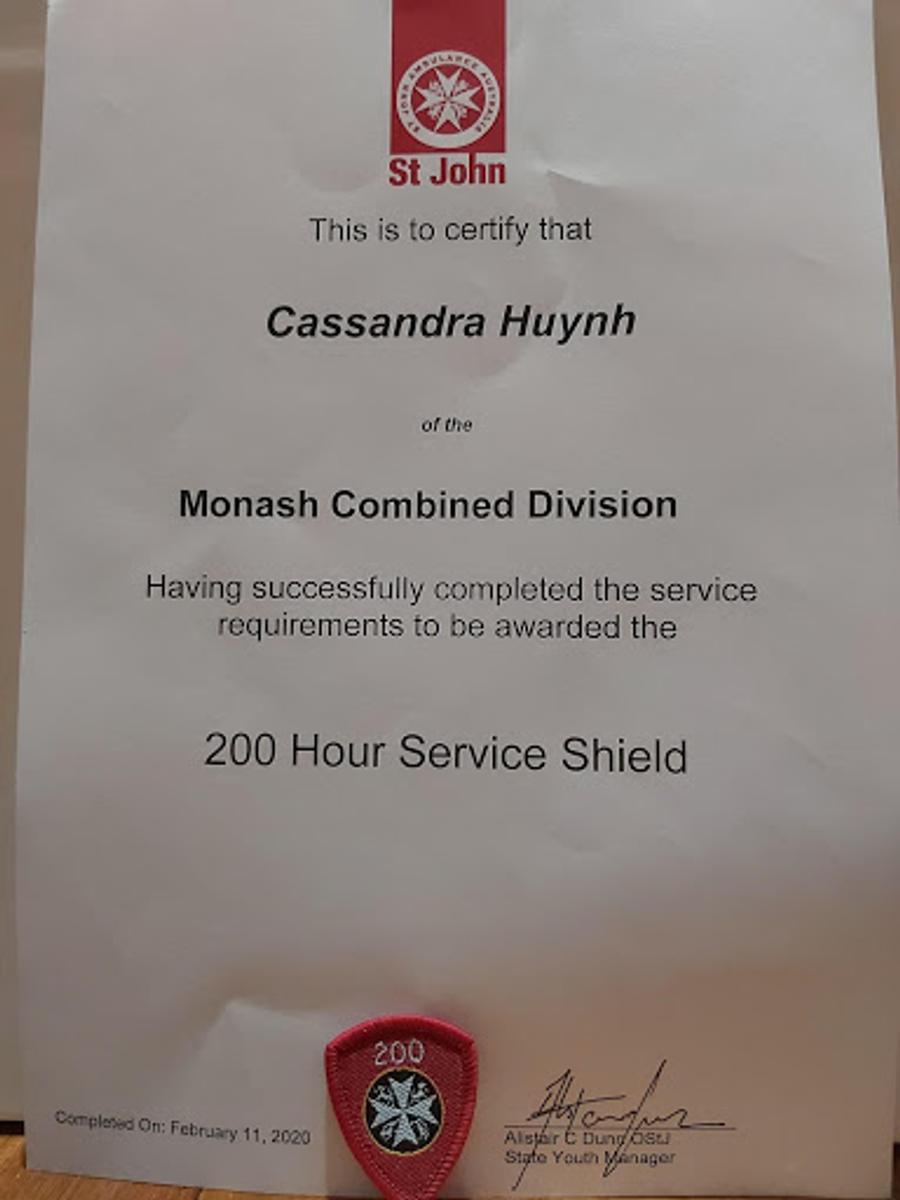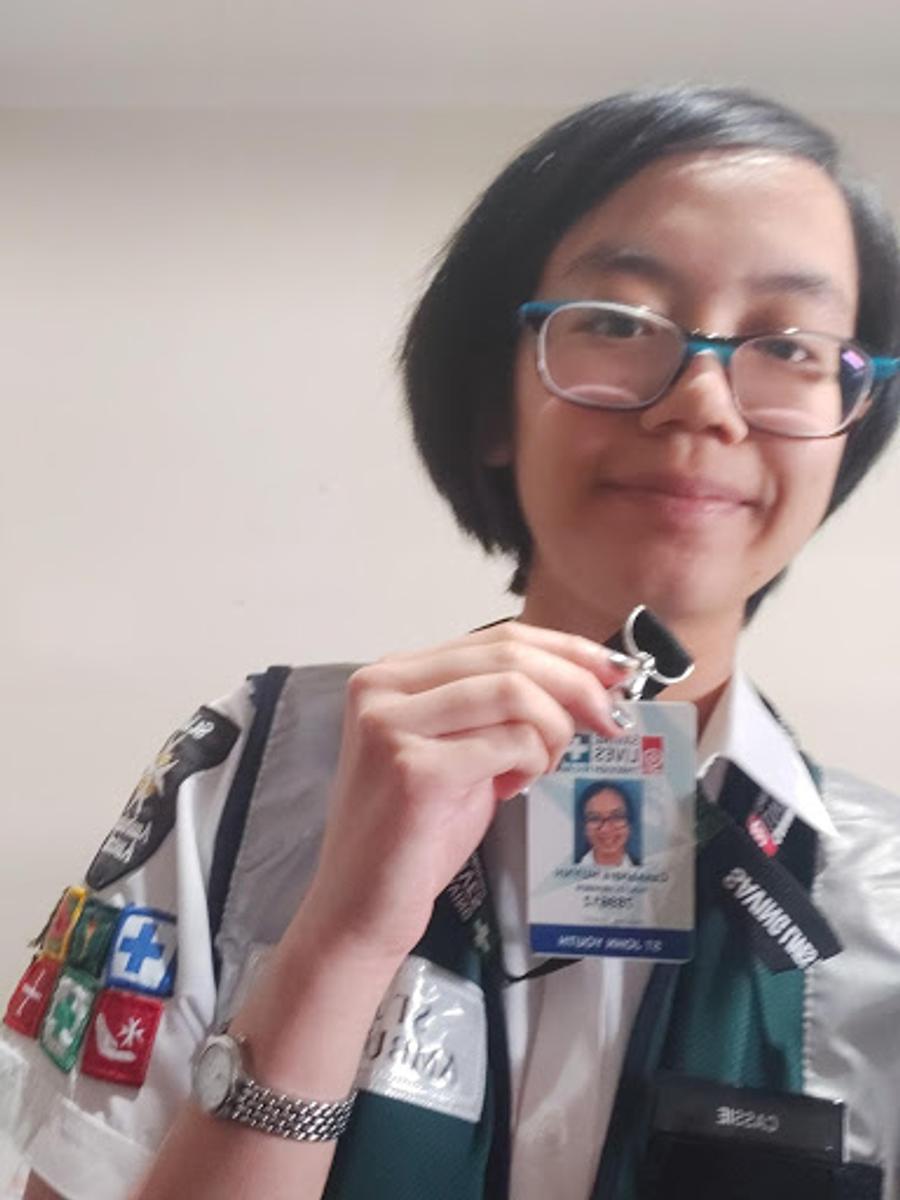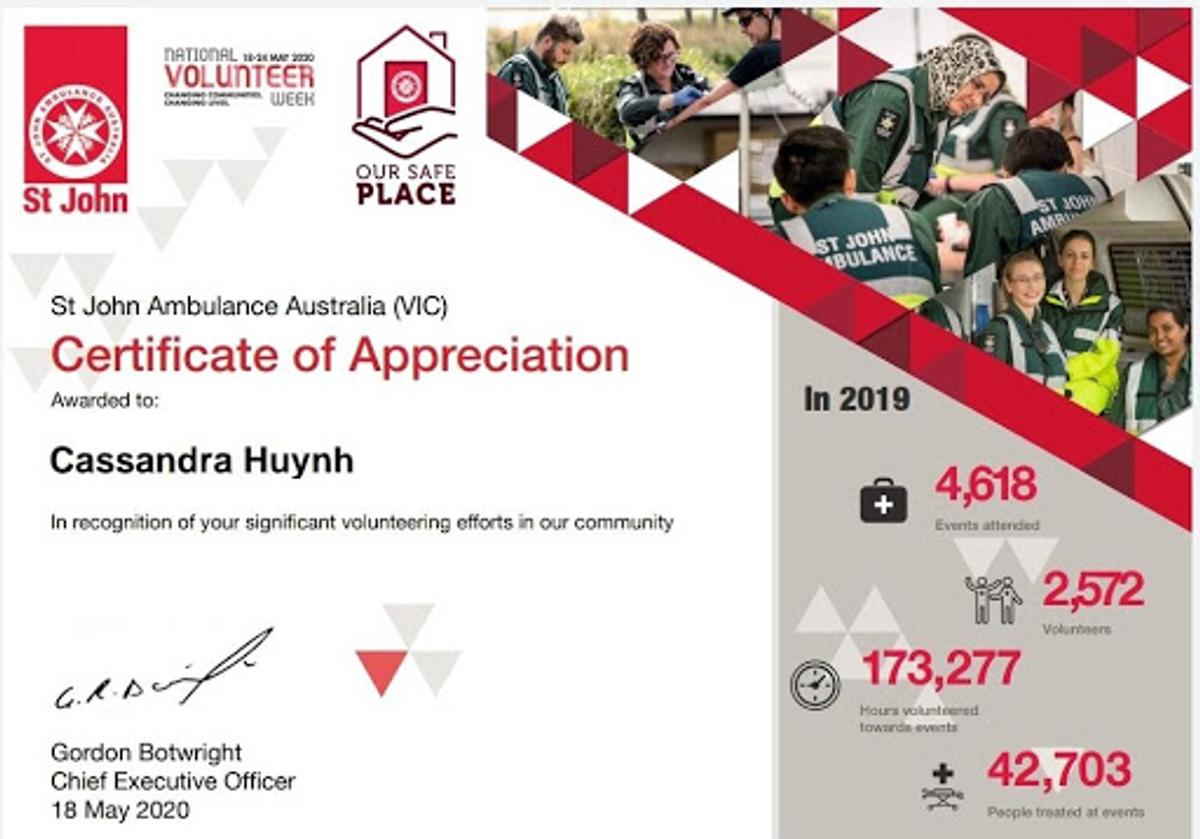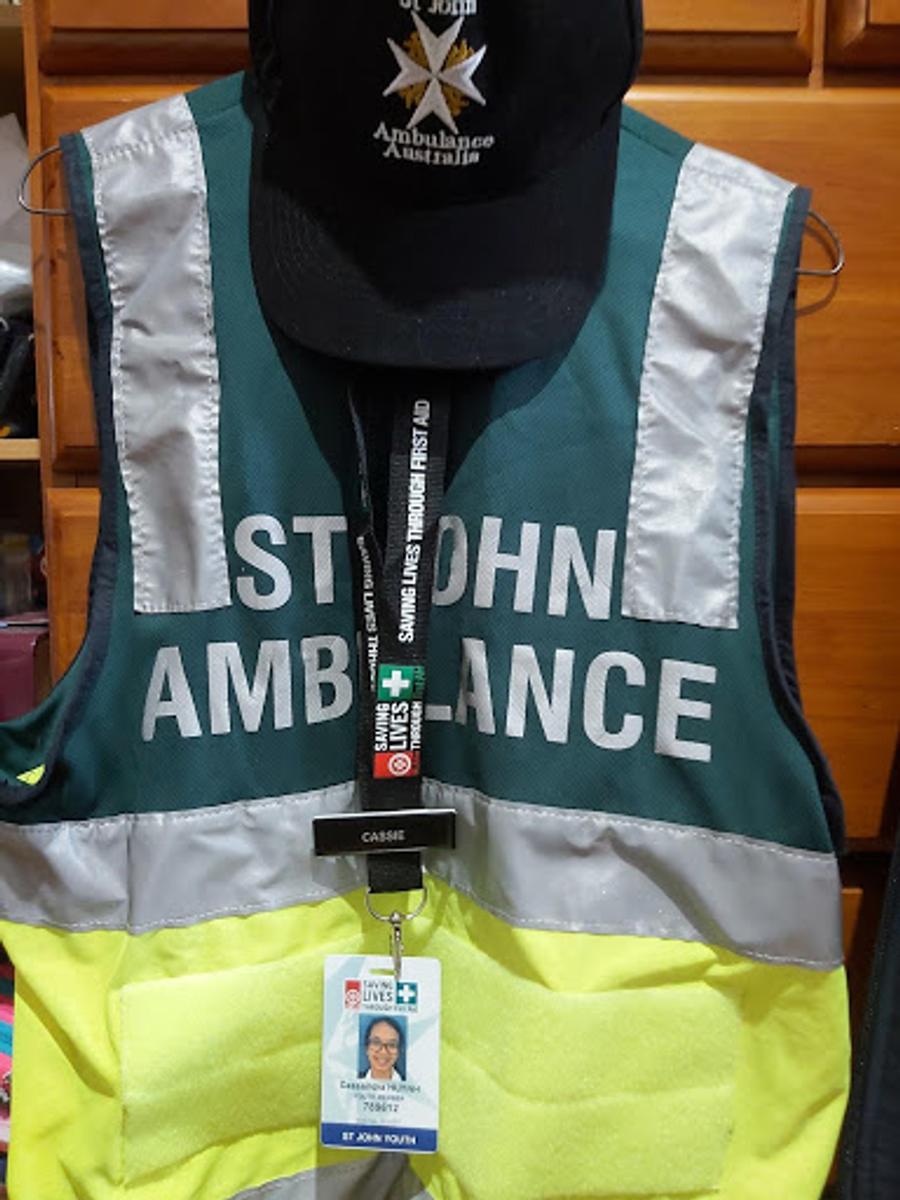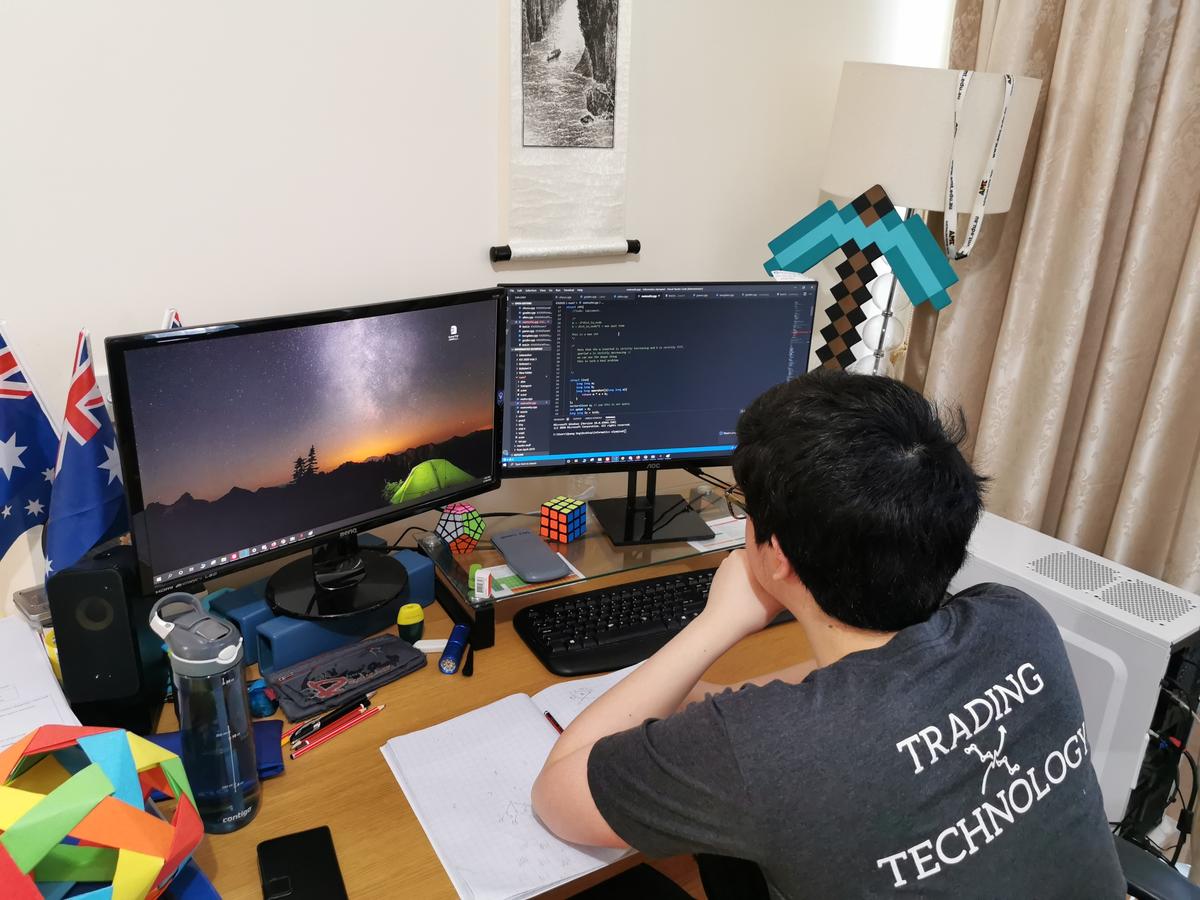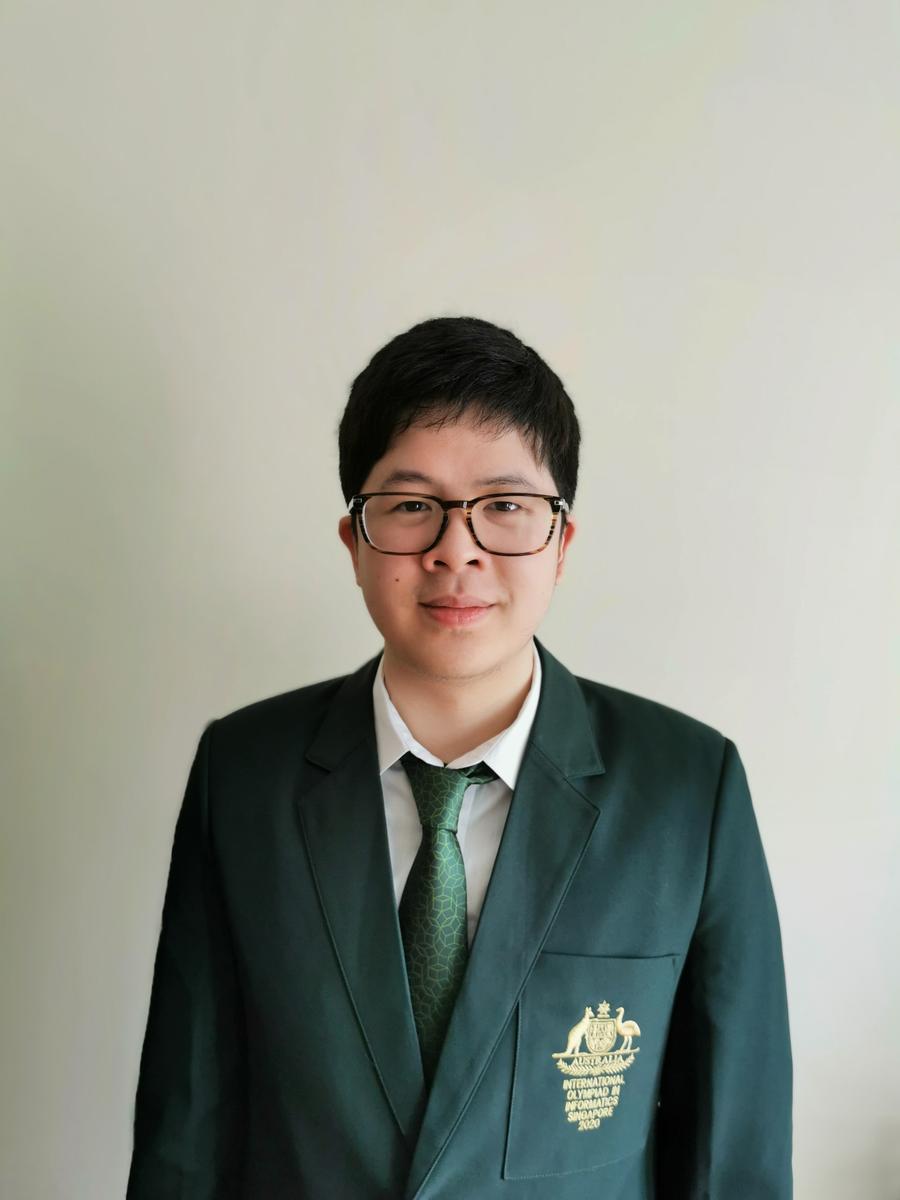We Betchya Didn't Know That...
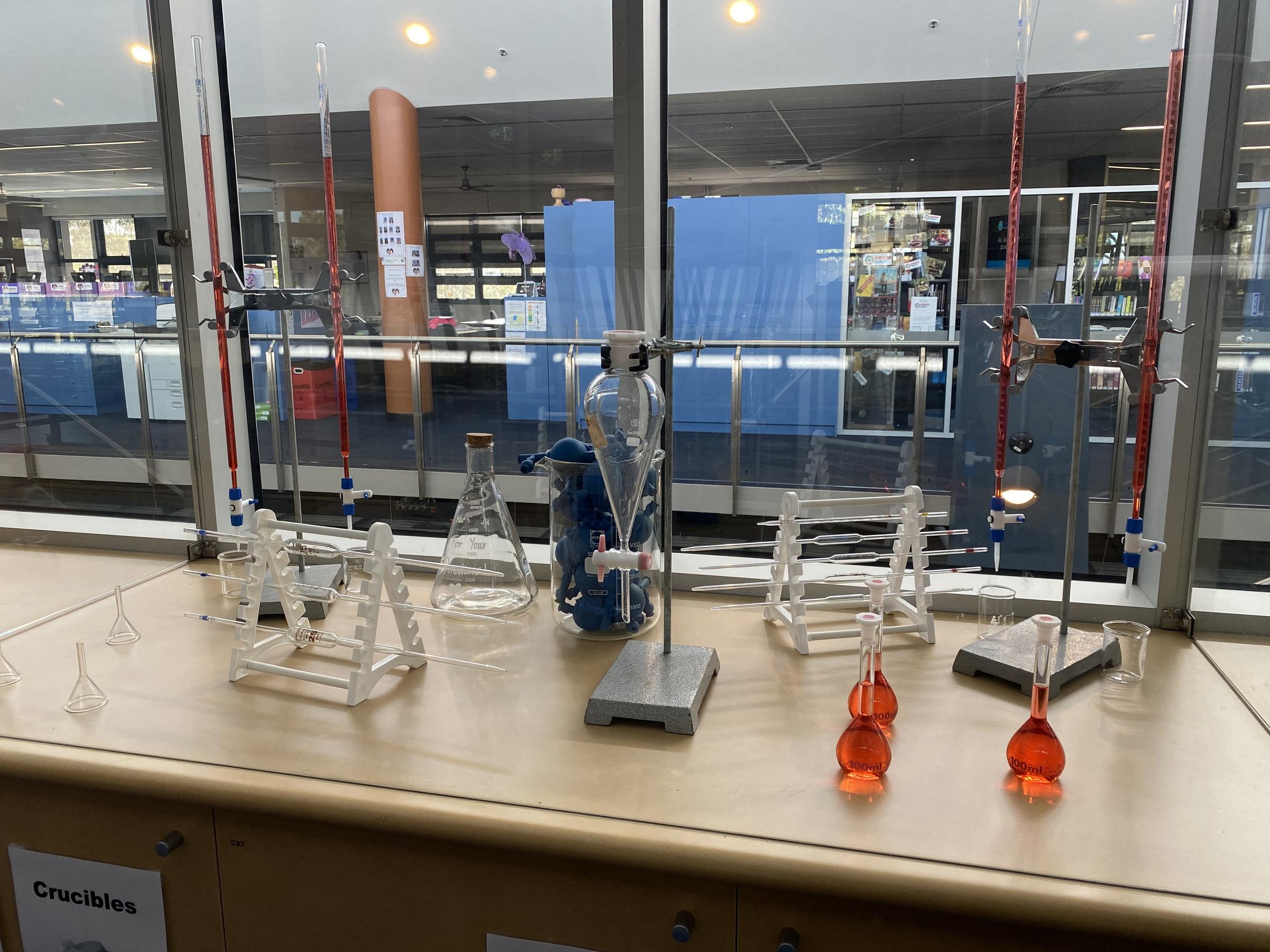
Cassie Huynh
Hi everyone!
My name is Cassandra Huynh but most people know me as Cassie. Since the age of nine, I have been a volunteer with St John Ambulance Victoria. As part of the youth program at my division (Monash), I have gotten to participate in scenario competitions, make lifelong friendships with my other youth members, earn proficiency badges that will contribute towards the Grand Prior’s Award and attend events varying from local footy games to The Australian Open.
To me, the most rewarding part of being a volunteer is that I get to help others who just need that little bit of medical support. Since I started at quite a young age, going out on duty has allowed me to meet trained professionals and adults with careers in healthcare which sparked my own ambitions for my future studies.
Over the past few years, I have learnt the skills necessary to treat both minor and major injuries while also developing my communication skills when interacting with patients and the public. I would highly encourage everyone to look at the official St John Ambulance Victoria website and see how you can get involved.
My take away message: Reach out, get involved and make someone's day better. (Don't forget to say hi if you see me, in a fluro green vest, at the Australian Open and feel free to approach me at school if you would like to know more).
Quang Ong
Hello,
Thanks for giving me the opportunity to share my story in the school newsletter.
I'm Quang Ong, a year 12 student. In mid-September, I represented Australia in the International Olympiad in Informatics, earning a bronze medal for Australia, overall placing 102nd among 341 of the world's best high-school competitive programmers. Today, my task is to summarise what it is I do, and a year and a half's journey in a few paragraphs.
Informatics competitions are competitions where you are given 2-5 hours to solve 3-6 problems. Each problem requires you to write a computer program to take an input, and calculate an answer under constrained time and memory limits, with input sizes that push the theoretical optimal, encouraging fast and efficient algorithms.
For example, you may be asked to read in an integer n from an input file, and output the last 9 digits of the nth fibonacci number. Can your program solve the problem when n <= 1 000 in under one second? n <= 100 000? n <= 1 000 000 000 000 000 000? All are possible.
A harder, more interesting, much nicer, but longer example follows.
Given N infinite lines (given as y = mx + b form), you start at a large negative value (before any intersections happen) on one of the lines. You travel to the right along your current line until you hit an intersection with another line, in which case you switch to the other line, continuing to go to the right. No line is vertical and no three lines intersect at a common point. Calculate the line you end up on, after all intersections are complete. Can your program solve it when there are 2 lines? 3 lines? Less than 1000 lines? Less than 100 000 lines? To all solvers at home, despite the fact that this has a wonderfully simple solution, it is still a very challenging problem. Note: there are absolutely no prerequisites needed to solve this problem. I reiterate, I don't know who exactly is reading this right now, but you already know enough to solve it.
I still remember hearing about the Australian Informatics Olympiad back in the middle of Year 10. I spent a handful of days, bashing my head against the daunting past problems on Orac, moderately enjoying it, managing to solve a few but failing most. Originally, I just regarded the competition as something to do for fun. I never once thought of myself as someone who could make the camp, let alone represent the entirety of Australia. Then, sitting the competition, to my own bewilderment, I managed to do well enough to be selected for the summer training camp, where I met some of the most amazing people I have ever met. But the thing that truly surprised me was that most people never expected to even be there, expected to actually be of the calibre to be selected for the camp. It surprised me how these people weren't hyper-intelligent monsters that could learn anything at snap of a finger, but in fact, were simply curious, self-motivated, fellow human beings with hobbies and game addictions and friends and lives. So all I want to say is, give the Olympiad program a shot. Sit the AIO, AIMO, ASI science Olympiads, because while you may think you don't stand a chance at making the camps, neither does anybody else.
If you want to hear more about my experience competing in the international competition, have a look at this official blog post written by my team member, Tunan Shi. https://www.amt.edu.au/ioi-2020-2/double-olympian-tunan-shis-2020-ioi-journey
Kind regards,
Quang Ong.

